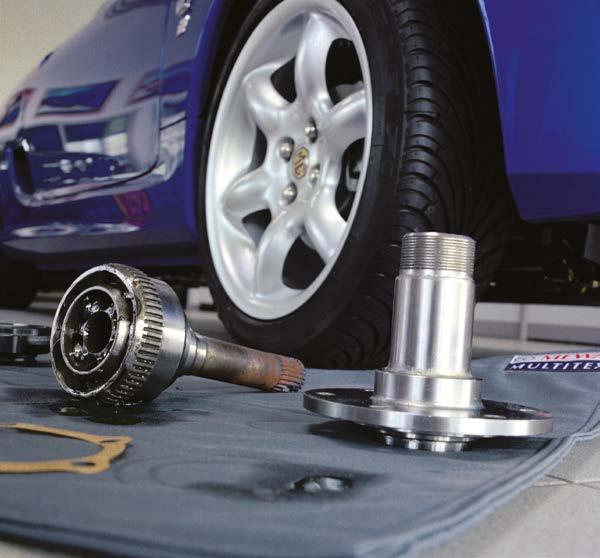
2 minute read
Dealing with spillages
Motoring towards a circular economy
MEWA – supplier of protective clothing, cleaning cloths, oil-collecting floor mats and parts-cleaners – looks at how workshops can better deal with spillages and become more environmentally friendly
Environmentally responsible practice is a growing trend in the automotive industry. Many garages are looking to develop new business models to address the issue but often struggle to make even small changes. Switching to reusable wipes for mopping up spills and cleaning components is one route to improved sustainability that even the smallest operation can adopt.
Engine oil, hydraulic fluids, antifreeze and grease are essential to the smooth running of vehicles and the spillage of these fluids within workshops is a common occurrence. These are often prevented with nothing more complex than drip trays and are cleaned-up with trusty blue paper towel, but is there a better approach? After all, spillages create several significant problems for garages. Even simple measures can have a significant impact and gives our industry an opportunity to even take the lead. The repair and maintenance activities that are implicit in automotive workshops are a central part of the circular economy philosophy, but there are other choices available that can reduce their direct environmental footprint too.
Cleaning up
All vehicles include multiple reservoirs of hydrocarbon-based liquids, such as engine and gearbox oils, and other materials like transmission and hydraulic fluids. Each of these come with environmental and health and safety hazards and disposal is often tightly regulated. For instance, the UK Health and Safety Executive issues guidance which recommends any spills are promptly addressed to reduce the risks of exposure to hazardous materials but also reduce the risk of slips and trips. Many workshops use rags or disposable blue paper roll to mop up such spills, as well as clean components and parts as they are disassembled, repaired and refitted. While effective, this approach does impose penalties in terms of the environmental impact.
Circular economy:
Gradually decoupling economic activity from the consumption of finite resources, and designing waste out of the system
An alternative strategy is now gathering traction, particularly in light of the demand for improved environmental performance and engagement with the circular economy. Rather than using disposable materials like blue roll, third-party suppliers are being contracted to deliver high quality reusable wipes and mats. Once used, these highly absorbent wipes are then collected, laundered and returned to workshops for reuse. Robust and durable, these cloths can rapidly soak up large volumes of the oil, solvents or grease found in automotive applications. Germany-based MEWA Textile Management is a major supplier of reusable cotton wipes and mats for spills and estimates that the use of cotton wipes and mats can produce savings of up to 30% of the time needed for cleaning. While this potentially represents a cash benefit, reusing wipes also offers considerable environmental benefits.
As well as maximising the use of primary materials like cotton, MEWA recovers oils from the washing process. This oil is subsequently used to power the eco-friendly washing process itself. In addition, environmentally-friendly wastewater treatment is assured while heat from the washing process is recovered. The result is an environmentally-friendly approach to spills that also eliminates the need to manage the purchase, delivery, storage and disposal of single-use materials like blue roll.
Offering a cost-effective and sustainable alternative to single-use products such as paper, using wipes that are that collected, washed and inspected under an end-toend full-service leasing model, means the supplier takes responsibility for improving environmental performance.










